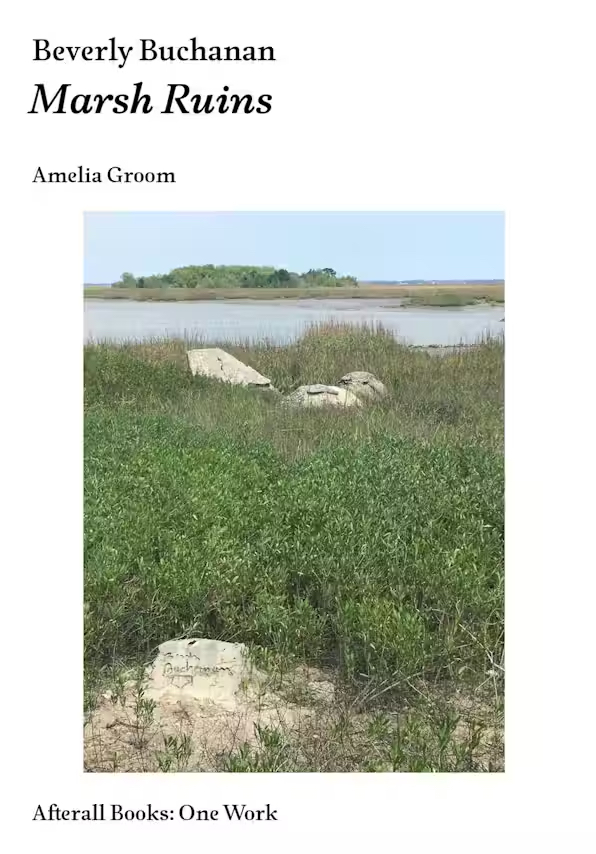Beverly Buchanan: Marsh Ruins
Beverly Buchanan’s ‘Marsh Ruins’ (1981) are large, solid mounds of cement and shell-based tabby concrete, yet their presence has always been elusive. Hiding in the tall grasses and brackish waters of the Marshes of Glynn, on the southeast coast of Georgia, the ‘Marsh Ruins’ merge with their surroundings as they enact a curious and delicate tension between destruction and endurance. This volume offers an illustrated examination of Buchanan’s environmental sculpture, which exists in an ongoing state of ruination.
Amelia Groom illuminates Buchanan’s vision of sculptural ruination, and probes her remarkable work in terms of ideas of witnessing, documentation, landscape, and cultural memory. Existing in dialogue with land art and postminimalist sculpture, the ‘Marsh Ruins’ are nevertheless unique refusals of art world classifications and systems of value. Making abstract use of concrete forms, Buchanan’s works embody their own stakes, from colonialism’s legacies of fracture and dislocation, to the workings of weather and time. In the words of her own mother, Buchanan had always “seen things” in rocks that others didn’t see.

